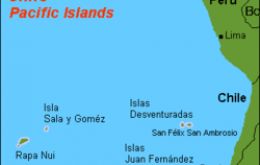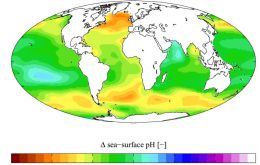MercoPress. South Atlantic News Agency
Tag: Ocean
-
Thursday, November 3rd 2011 - 01:35 UTC
UN publishes blueprint for ocean and coastal sustainability

Four United Nations organizations presented a project to preserve oceans and coastal areas threatened with environmental degradation. The document, released during the XXXVI UNESCO General Conference, warns of the danger faced by large aquifers, which play the role of climate regulators and are food sources and support for the economy of millions of people.
-
Monday, January 31st 2011 - 20:48 UTC
Loss of Antarctic glacial ice expected to trigger changes in ocean circulation patterns

The loss of a massive “tongue” of glacial ice on the Antarctic coast — a natural protective barrier nearly the size of Luxembourg (2.500 square kilometers) — could affect ocean circulation patterns and anticipate changes to come from global warming, scientists on a mission to the frozen continent say.
-
Thursday, August 19th 2010 - 06:00 UTC
National Geographic wants to protect Chilean pristine marine life Island

Chile’s Salas y Gómez Island has caught the attention of The National Geographic Society as one of the most pristine marine sites in the world.
-
Tuesday, April 27th 2010 - 05:36 UTC
Scientists Discover Deep-Ocean Current Moving Northward from Antarctica

Work in Japan and Australia has revealed that a deep-ocean current is carrying frigid water rapidly northward from Antarctica along the edge of a giant underwater plateau.
-
Saturday, April 24th 2010 - 07:13 UTC
Global Warming Contributing to Rapid Ocean Acidification

Carbon dioxide emissions that contribute to global warming are turning the oceans more acidic at the fastest pace in hundreds of thousands of years, the U.S. National Research Council warns.
